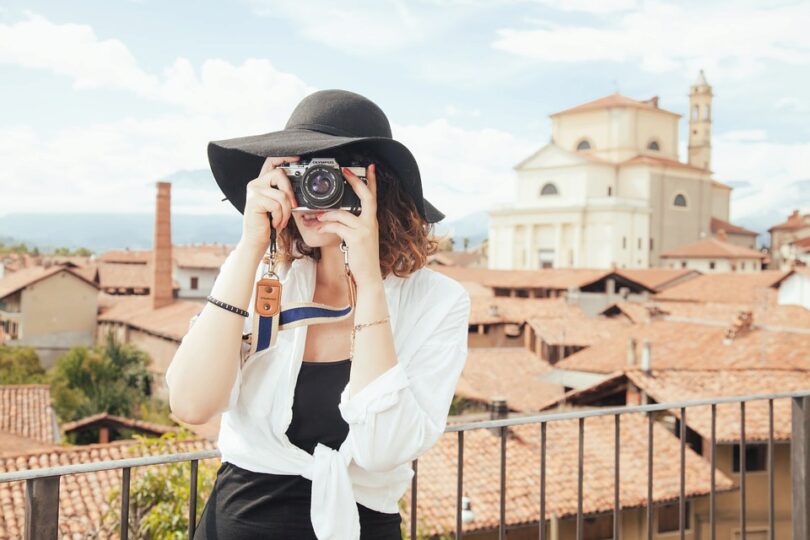Is it allowed to travel in Corona times? Is that irresponsible? Should one post photos of it on social media? For many travelers, the answer is more and more often “no”. Because they are currently experiencing the negative public reaction to their travels – in the form of travel shaming.
Travel shaming existed in a certain form even before Corona. Mostly it is related to the fact that certain people have very clear ideas about what you are allowed to do and what you are not allowed to do while traveling.
This can lead, for example, to people making fun of camping vacationers who “cannot afford” to stay in a luxury hotel. Travel Shaming of air travelers or all-inclusive vacationers in times of climate change and sustainable tourism is also not uncommon.
But Corona has taken Travel Shaming to a new level. And the problem is that nobody knows exactly what is legitimate and what is not.
Travel Shaming takes place primarily on social media
Because it is not about people who travel although they are not allowed to. As a rule, vacationers adhere to existing hygiene regulations, travel restrictions and regulations on corona tests or quarantine regulations.
Nevertheless, the fact that people travel in these times does not meet with much approval, especially in the social media.
Especially travel bloggers or people who were already travelling a lot before Corona are now feeling the full force of negative comments via social media. Mostly, however, this happens rather anonymously via private messages.
Insulted by message
The travel blogger Matt Long reports to the Washington Post, for example, that after the relaxation of the lockdown regulations in the USA he slowly began to travel through his own country again. He received almost consistently positive comments on the photos he posted about it. It looked different in his inbox.
Here he received one message after the other from people who resented his travels. In one message someone wrote to him: “I haven’t moved beyond my driveway for two months. My daughter can’t go to swimming lessons, but you are going to a resort. No, that’s not fair.”
Sarah Archer, a digital nomad from Boston, also experienced Travel Shaming firsthand.
In order to meet her boyfriend in Switzerland, the two undertook a series of trips. Because Sarah Archer was not allowed to enter Switzerland at first, she flew to Serbia. At that time, the country allowed entries from the USA. There she met with her boyfriend.
Afterwards Croatia opened its borders for US citizens, so they traveled there. When Switzerland permitted then again entries from Croatia, the two could travel then together into Switzerland.
Although the behavior was actually rule-consistent and she posted her way therefore as “travel tips”, the reactions were negative. Followers asked her if it would not seem irresponsible and selfish to travel in these times.
There are no clear rules
In fact, there are no easy answers to this question. After all, there are no clear rules or appropriate social media netiquette for traveling during Corona.
Who decides which trips are really necessary and how responsible someone is to travel? After all, theoretically someone can be more careful when traveling than another person in the local restaurant.
However, because there are no established norms for this, people tend to set these norms based on existing examples, says Krista Thomason, professor at Swathmore College and shame expert. In this case, these are the very visible travel influencers.
The lack of norms, in turn, also influences how shame is created and how strong it is.
As a result of a lack of social norms, social media then acts as a substitute as a social corrective for travelers. Sometimes this can be helpful, for example, when you realize that you did not wear a mask in the photo and change this in the future.
But in other cases, travel shaming is also associated with other emotions. Many are envious because they had to cancel their trips and cannot travel themselves. Others, on the other hand, have deliberately not traveled in order to protect themselves and others. Then it causes resentment when they see that others do not act in this way.
In times when we don’t know exactly what’s right and what’s wrong, there are quite different reactions to travel shaming, both from users and from the influencers themselves.
Traveling will not be “normal” for a long time
Some don’t even care about the negative comments. Other influencers have changed the nature of their posts to describe the difficulties and precautions to take on their travels.
Others use their posts to encourage others and to show where and how you can travel during Corona without endangering yourself or others.
But a large part of the influencers choose a different path: they no longer post about their travels. Be it to avoid travel shaming, or to spare other users the view of something they cannot do at the moment.
In the end, there is no general “right” and “wrong” here. What is clear is that traveling naturally carries a higher risk than staying at home. But as long as there are no laws or regulations, everyone will have to decide for themselves whether and how they want to travel and in what form they want to share this with the public.
“Normal” travel will certainly not feel like it for a while. In the best case, Travel Shaming will lead us all to think more about our behavior, change it if necessary and travel will not remain a taboo topic, but rather start a dialogue about it.










